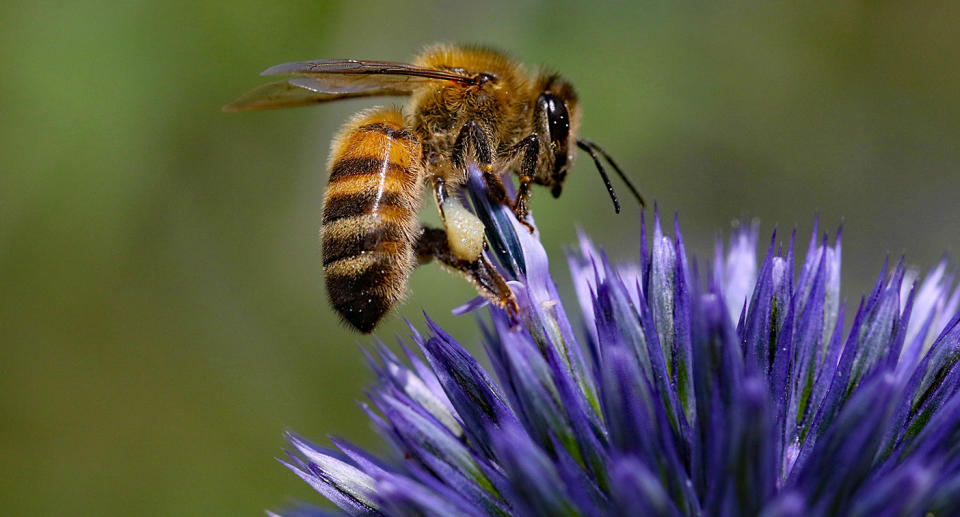Large swarms of bees hit Sydney as rain clears
Large swarms of bees have been spotted creating sticky situations at school playgrounds, shopping strips, and residential gardens across Sydney as the rain begins to clear.
A break in the city’s wet spring is causing the hive of activity, as bees seek out an abundance of nectar.
Beekeeper Doug Purdie, who runs The Urban Beehive, has received hundreds of calls for help in recent weeks from residents not so keen about the swarms popping up all over the place.

“I’ve captured and relocated swarms from lots of strange places, including a Macquarie Street office building, airport hotel and children’s playgrounds,” Mr Purdie told the ABC.
Swarms have been spotted in Earlwood and Canterbury in Sydney’s inner west, Menai in the Sutherland Shire and Darkes Forest in the Illawarra, according to social media reports.

The ABC reports pedestrians trying to cross the road at an Earlwood shopping strip were forced to contend with a large swarm, while another occupied a Five Dock school.
Seven-year-old Zoe Feder said a swarm took up residence on her letterbox, but after her dad shooed them off with a stick, they had flown over to her school across the road and were discovered the next day.
“Everybody had to go inside and shut the doors and windows,” she told the ABC.
The primary schoolgirl said luckily nobody was stung and the insects eventually relocated.

Why are bees important to our environment
While they’re seen as a pest to many, bees actually have an important job to do in pollinating plants and helping to fertilise them.
Depending on the plant, fertilisation can also help it grow and produce food.
Some flowers also need vibration to release pollen, which many of our native bees can do.
“We’re here to help protect local bee populations against threats and to raise awareness of the plight of all our beneficial insects,” Mr Purdie told the ABC.


